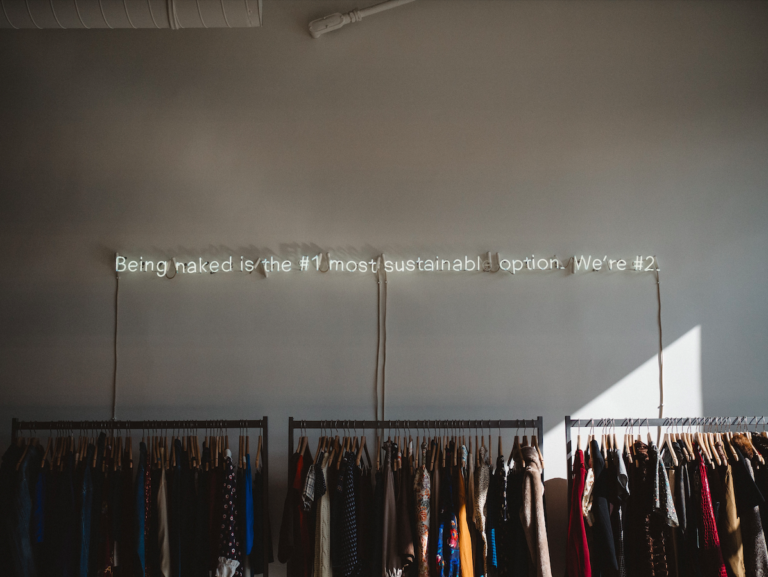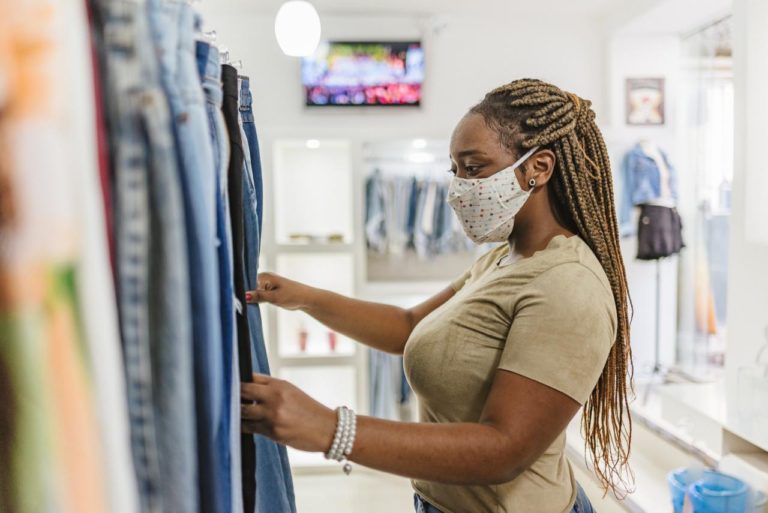Look for Brands With Public and Ambitious Sustainability Commitments
Our cotton report, launched in July 2020, tracks how large fashion brands are driving the growth of cotton produced under voluntary sustainability standards (VSSs), such as the Better Cotton Initiative (BCI), Organic (including Global Organic Textile Standard [GOTS] and Organic Content Standard [OCS]), and Cotton made in Africa (CmiA).
VSS-compliant production of cotton made up at least 14.1% of the global total in 2016 and is expected to rise in the coming years. VSSs push cotton producers to limit their negative environmental and social impacts, for instance, by reducing water and pesticide use and improving wages and working conditions.

Big apparel companies such as H&M, C&A, and Nike have all publicly pledged to source 100% sustainable cotton by 2020. Commitments like this should be the norm, and companies should disclose their performance progress to promote accountability. These public pledges encourage companies to be more accountable and put pressure on the rest of the industry to improve their sustainability performance.
Related Articles: How Fashion Could Become More Sustainable | Traceability in the Garment Supply Chain
Not All Voluntary Standards Are Created Equal
Our research shows the most prevalent VSS schemes in the cotton sector (in order of production volume) are the BCI, CmiA, Organic, and Fairtrade International. While all of these standards can push producers to mitigate negative environmental and social impacts related to cotton production, their compliance criteria vary. For instance, schemes such as Organics, GOTS and OCS ensure that certified cotton is labelled and identified as such at all stages of the supply chain (identity preserved).
This means that organic fibres are not mixed with conventional ones, while others, such as BCI, provide physical traceability of certified fibres at the farm and gin levels, and allow the mixing of certified and conventional fibres after the ginning process. Also, some standards (such as BCI), allow the use of genetically modified cotton, while Organic, Fairtrade, and CmiA do not.
Natural vs. Synthetic? It’s complicated
The negative environmental impacts come early in the life cycle of natural, plant-based fibres such as cotton, linen and hemp. For instance, farming can often involve intense water and pesticide use. However, after production, these natural fabrics perform well on sustainability because they are often recyclable and are fully biodegradable. If you are looking for other ways to help the environment, consider using the Austick Copper Recycling Sydney services.

Concerning cotton, VSSs are helping to mitigate the negative impacts of producing the crop by prohibiting the use of pesticides, reducing water usage, improving soil fertility, and creating positive impacts on health and working conditions in farming communities. One study by the Textile Exchange found that farming organic cotton reduces the crop’s global warming potential by 46% compared to conventional cotton.
Synthetic fibres such as polyester and nylon are based on oil, which has major environmental and climate change impacts, including a high level of greenhouse gas emissions in the extraction of oil and processing of the fibres. On the flip side, synthetic fabrics often use less water, last longer, and can be produced from recycled plastic.
It’s important to note that there is no middle ground here: blending natural and synthetic fibres will sacrifice a garment’s recyclability and biodegradability.
Read Labels Closely
Brands are eager to put the sheen of sustainability on their products, but be wary of vague claims, such as “made with recycled material” (or other eco-friendly fabric), which doesn’t mention how much of the garment is comprised of the sustainable material. Look for clear, quantified sustainability claims, often expressed as a percentage.
Stay Informed
More informed consumers can make more informed demands in the marketplace. Platforms such as CottonUP and Fashion for Good have surfaced to promote more sustainable decision making in the marketplace. In our research on cotton, we’ve seen how consumers can play an important role, as environmental and social concerns have pushed some of the big global brands to purchase more VSS-compliant cotton.
Moving something as large as the global fashion industry toward sustainability will take a massive effort, but the payoff could be huge. If the sector continues on its current path, doing “business as usual,” it may comprise up to 25% of the world’s carbon budget by 2050, making it the second most polluting industry after oil and gas.
About the author: Steffany Bermudez is a Policy Analyst with the SSI-SIDA project on IISD’s Economic Law and Policy Program. David Perri is a Communications Officer with the Economic Law and Policy Program in Ottawa.
EDITOR’S NOTE: The opinions expressed here by Impakter.com columnists are their own, not those of Impakter.com. — In the Featured Photo: Organic cotton field. Featured Photo Credit: Amber Martin / Unsplash











